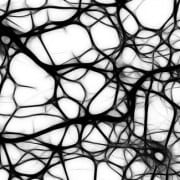A Simple Vitamin for Memory Problems?
As previously reported by ACN Latitudes, animal research at the University of California, Irvine has inspired a study in the UK to help determine if high doses of vitamin B3 (niacin or nicotinic acid) can slow the progression of Alzheimer’s disease. In this article we cover the dosage used in the study, additional information, and a key link to explore other articles on natural treatments for Alzheimer’s and dementia.
The Guardian reported that “Delaying the onset of the disease by five years would halve the number of deaths from the condition, saving 30,000 lives a year, according to the Alzheimer’s Society. Scientists at the University of California, Irvine, gave high doses of a form of vitamin B3 called nicotinamide to mice which had been genetically modified to develop Alzheimer’s disease. The researchers, led by Dr Kim Green, tested the animals’ memories over the four month study by seeing how well they remembered the location of a submerged platform in a large water tank.”
“At the end of the trial the mice with Alzheimer’s performed as well in the memory test as healthy mice, suggesting the vitamin had protected their brains from memory loss. Healthy mice who were fed the vitamins outperformed mice on a normal diet. ‘The vitamin completely prevented cognitive decline associated with the disease, bringing them back to the level they’d be at if they didn’t have the pathology,’ said Green. ‘It actually improved behavior in non-demented animals too.’” The researchers suggest could be helpful for those who do not show signs of Alzheimer’s, and may improve their memory.
In the current study, high doses of vitamin B3 are being given to 70 people recently diagnosed with the disease. Research so far suggests that over-the-counter vitamin supplements will contain too little vitamin B3 to have an effect. Volunteers taking part in the trial will be given 2g of the vitamin a day. Previously, scientists have only seen serious side effects in doses of 10g or more, which were found to cause liver damage. The vitamin is thought to help prevent the build-up of proteins inside neurons in the brain.
If you try this approach, be aware that niacin can cause an uncomfortable flush, tingling or itching. Some people try to gradually increase the amount taken as their body adjusts to the niacin. Others use a non-flush niacin, though some practitioners recommend the flush version for extra effectiveness.
Natural sources of B3 include blue cheese, brewer’s yeast, brain, calcium pantothenate, corn, eggs, heart, kidney, legumes, lentils, liver, lobster, meats, milk, molasses, peanuts, peas, rice, soybeans, sunflower seeds, vegetables, wheat germ, and whole grain cereals. This nutrient participates in the release of energy from carbohydrates, fats and protein; aids in the utilization of vitamins; improves the body’s resistance to stress; helps in cell building and the development of the central nervous system; helps the adrenal glands; fights infections by building antibodies.
(Source: Orthomolecular.org)






